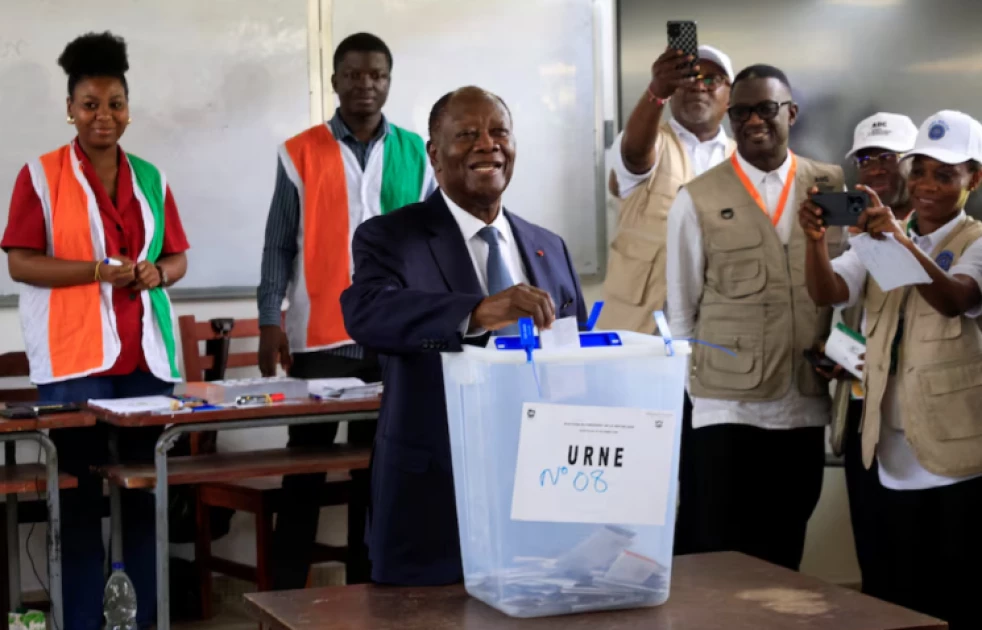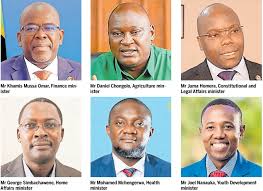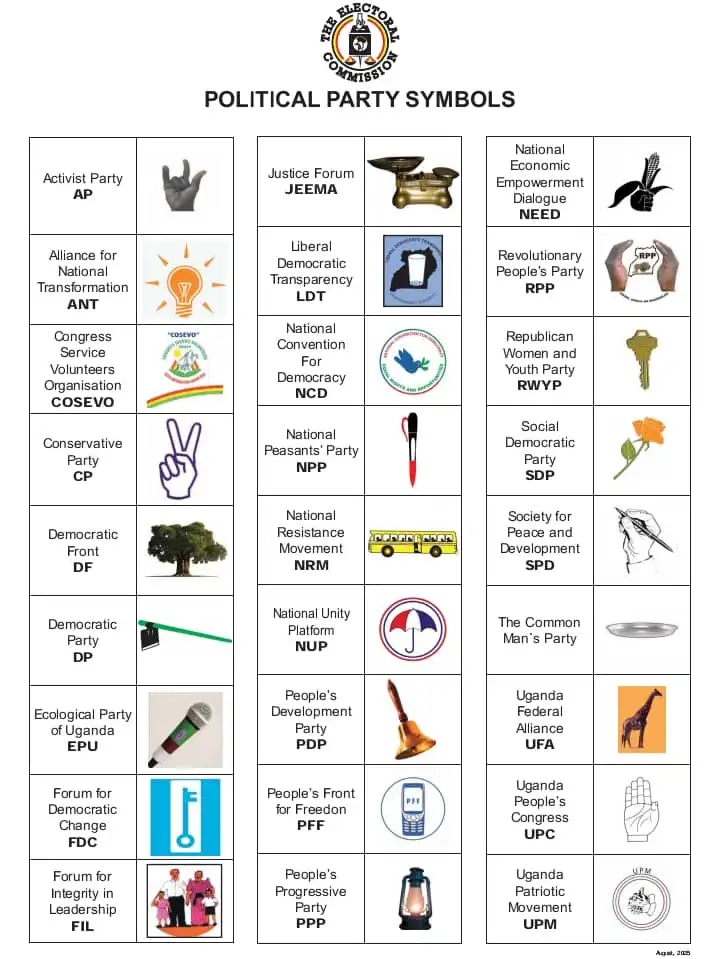Abidjan, Ivory Coast — Ivorians headed to the polls on Saturday in a closely watched presidential election, as 83-year-old President Alassane Ouattara — one of Africa’s longest-serving leaders — seeks a controversial fourth term, promising stability and continued economic growth even as calls mount for generational change.
Ouattara, a former International Monetary Fund (IMF) executive and international banker, has ruled Ivory Coast since 2011.
He came to power following a violent post-election conflict that claimed about 3,000 lives, triggered by then-president Laurent Gbagbo’s refusal to concede defeat.
After nearly 15 years in power, Ouattara points to economic transformation and improved infrastructure as evidence of progress under his leadership. The West African nation — the world’s largest cocoa producer — has experienced steady growth, with expanding mining operations and foreign investment in transport and education.
But as polls opened at 8 a.m. local time in the commercial capital Abidjan, many voters voiced mixed feelings about his longevity in office.
“He has really changed the image of Ivory Coast, but this should be his last mandate. We need to pass the torch to the new generation,” said Souamane Cisse, a 44-year-old driver in the Adjame district.
This election takes place against the backdrop of uncertainty about succession in the ruling Rally of Houphouëtists for Democracy and Peace (RHDP) party. Ouattara has hinted that this will be his final campaign, describing his run as one of “generational transmission,” but he has not publicly endorsed a successor.
“I know it’s not easy to work at the same pace at my age,” Ouattara acknowledged earlier this week, signaling that leadership renewal may soon be inevitable.
Former rivals Laurent Gbagbo and Tidjane Thiam, ex-CEO of Credit Suisse, were ruled ineligible to run, leaving Ouattara facing lesser-known opponents, including Simone Gbagbo (76), the former first lady, and Jean-Louis Billon (60), a former commerce minister. Neither has the full backing of a major political party.
Over eight million Ivorians are registered to vote, with provisional results expected within five days. A runoff will be held if no candidate surpasses 50 percent of the vote.
Ivory Coast’s median age is just 18, and many young people are increasingly frustrated by what they see as an entrenched political elite.
“I didn’t want to vote at first, but I came for change. I want things to change,” said Alfred N’zi, a 36-year-old former dock worker in Bingerville who lost his job three years ago.
Landry Ka, 22, a student, echoed that sentiment. “We’re tired of old people making decisions for us,” he said, adding that he would vote for Simone Gbagbo as a protest against stagnation.
Analysts warn that the disconnect between aging leadership and a youthful population could shape the country’s future political landscape.
“Many young Ivorians express deep scepticism toward the political elite, citing persistent unemployment, inequality, and limited representation,” said Chukwuemeka Eze, Director of the Democratic Futures in Africa Program at Open Society Foundations.
Although Ivory Coast has a violent electoral past, this year’s campaign has been largely peaceful. Still, tensions simmer beneath the surface. Authorities deployed 44,000 security personnel nationwide, and curfews were imposed in parts of Yamoussoukro following sporadic protests earlier this week.
Human rights organizations, including Amnesty International, criticized what they described as a heavy-handed ban on demonstrations. The Interior Ministry confirmed that hundreds of people have been arrested for alleged public order offences, with some receiving prison terms of up to three years.
Government spokesperson Patrick Achi, a former prime minister, defended the measures. “We protect freedom of expression, but we also have a duty to maintain peace,” he told Reuters. “Let’s keep stability, and then the next generation can build on that foundation.”
As polls close at 6 p.m. local time, many Ivorians hope for a peaceful outcome — whether it marks continuity or change. For now, the country stands at a crossroads: between an ageing president’s legacy and a young nation’s demand for renewal.



